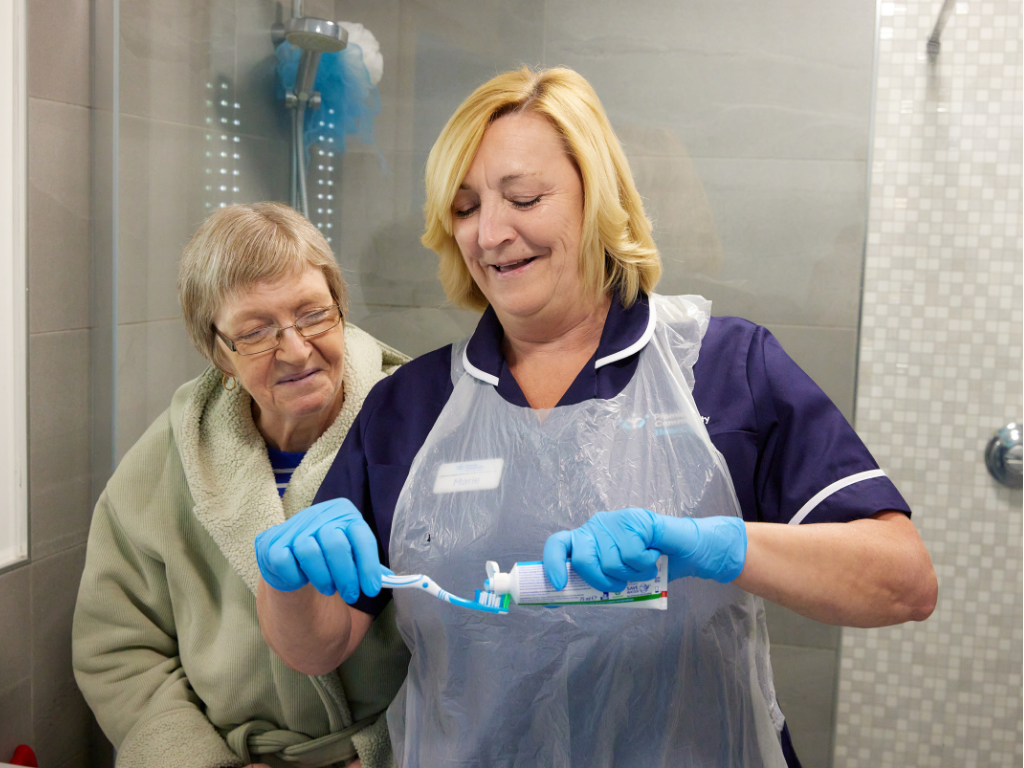As we grow older, taking care of our health becomes more important than ever — and that includes our mouths. Good oral hygiene isn’t just about having a bright smile; it plays a key role in our overall well-being, especially in later life. Yet, for many older adults in the UK, oral health often gets overlooked.
Caring for your teeth and gums in your later years can help prevent discomfort, support nutrition, and even protect you from more serious health problems.
Why Oral Hygiene Matters More with Age
As we age, our mouths undergo natural changes. Gums may recede, enamel wears down, and dry mouth becomes more common, especially if you take certain medications. These changes can increase your risk of tooth decay, gum disease, infections, and even tooth loss.
Beyond the mouth, poor oral health has been linked to conditions like heart disease, stroke, diabetes complications, and respiratory infections. In other words, keeping your mouth healthy can help keep the rest of your body healthy too.
Common Oral Health Challenges in Older Adults
Dry Mouth
Known medically as xerostomia, dry mouth can be caused by a variety of common medications, including those for high blood pressure, depression, and allergies. Saliva plays a crucial role in washing away food particles and neutralising acids, so when it’s lacking, tooth decay becomes more likely.
Gum Disease
Also called periodontal disease, this condition is especially common in older adults. It often starts with swollen, bleeding gums but can progress to tooth loss if untreated. Smoking, poorly fitted dentures, and diabetes can make it worse.
Tooth Sensitivity and Decay
Enamel naturally thins with age, and receding gums expose the roots of teeth, making them more sensitive and prone to decay. Routine brushing, fluoride toothpaste, and regular dental visits help combat this.
Difficulty Cleaning Teeth
Conditions like arthritis can make it harder to grip a toothbrush or floss effectively. But there are simple tools and techniques that can help, which we’ll explore below.
Daily Habits for a Healthier Smile
Here’s how to maintain good oral hygiene — even if brushing and flossing aren’t as easy as they used to be:
- Brush twice a day with fluoride toothpaste. Use a soft-bristled toothbrush or an electric one with a wide handle for easier grip.
- Clean between teeth using floss or interdental brushes. If dexterity is a challenge, floss holders or water flossers can be helpful.
- Rinse with a fluoride mouthwash, especially if you’re at higher risk for tooth decay.
- Stay hydrated to combat dry mouth and consider sugar-free chewing gum to stimulate saliva production.
- Visit the dentist regularly — ideally every six to 12 months — even if you wear full dentures.
What About Dentures?
If you wear dentures, caring for them is just as important as caring for natural teeth:
- Remove and clean them daily using a soft brush and denture cleaner (not regular toothpaste).
- Let them soak overnight in a cleaning solution unless advised otherwise by your dentist.
- Give your gums a break by not wearing dentures at night.
- Attend regular dental check-ups to ensure a good fit and detect any irritation or sores early.
The Role of Diet and Lifestyle
A balanced diet supports healthy teeth and gums. Here are a few tips:
- Limit sugary snacks and drinks, which can feed harmful bacteria in the mouth.
- Eat crunchy fruits and vegetables like apples and carrots — they help clean the teeth and stimulate saliva.
Accessing Dental Care Through the NHS
In the UK, NHS dental services are available to everyone, and there are exemptions for certain groups, including:
- People over 60
- Those receiving Pension Credit or other qualifying benefits
- People with certain medical conditions
- To find an NHS dentist near you, you can visit the NHS website or call NHS 111 for guidance. If mobility is an issue, ask your local NHS service about domiciliary care — some areas provide home visits for patients who are housebound.
- Don’t hesitate to bring up any concerns with your GP, carer, or pharmacist — they can help direct you to appropriate dental support.
How we can help:
If you are unable to attend appointments on your own our carers can help with this. Our Companionship Care can help support with attending appointments.
If you think it would be beneficial having someone there to assist with encouraging and promoting independence with daily tasks such as brushing teeth, then our compassionate personal care services could be the one for you.
Oral health might not always be the first thing on your mind, but it plays a major role in your quality of life. From being able to enjoy your meals without discomfort to preventing serious health issues, maintaining good oral hygiene is a simple but powerful form of self-care.
Whether you have all your own teeth, wear dentures, or have implants, looking after your mouth is just as important in your 60s, 70s, and beyond as it was when you were younger.
So, grab that toothbrush, schedule that check-up, and smile — you’re taking care of more than just your teeth.




